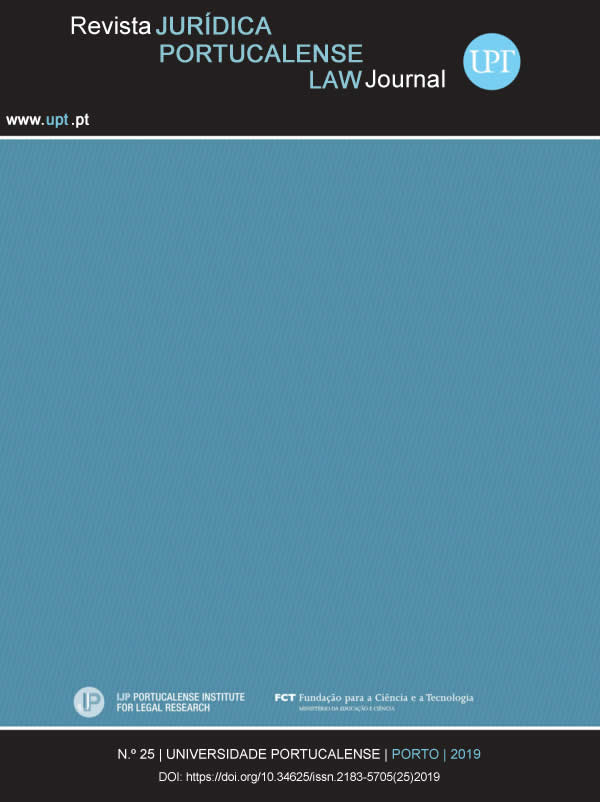Brief notes on transmission of shares in case of death of shareholder in private limited companies
Abstract
In case of death of a partner of a private limited company, the transfer of it’s share will take place, in principle, under the general terms of the law of succession. However, there are exceptions that escape the natural succession phenomenon regulated by the law of succession, if, for example, contrary stipulation is provided for in the social contract. The social contract may contain clauses restricting the transmission of social participation to its successors, in so far as it establishes conditions of non-transferability of the share to the successors of the deceased partner, and in such cases it must be amortized (article 232 and seq. of the Commercial Companies Code) or acquired by the company (article 220 of the CCC), by partners or by third parties. The surviving members have 90 days to decide on one of the measures, otherwise the share will be definitively passed on to the heirs (article 225 nº 2 of the CCC). The social contract may also place the transfer of the share in the dependency of the successors of the deceased shareholder and mention, in general terms, the possibility of the transfer being in some way conditioned to the will of the shareholders successors. As such, they must declare it in writing to the company within 90 days of the death (article 226 of the CCC).
References
ABREU, Jorge Manuel Coutinho - Curso de Direito Comercial. 5.ª Ed. Vol. II. Coimbra: Edições Almedina, 2017, ISBN: 978-972-40-5949-5.
CORDEIRO, António Menezes (Coord. de) – Código das Sociedades Comerciais. Anotado. Coimbra: Edições Almedina, 2009. ISBN: 978-972-40-3791-2.
CORREIA, A. Ferrer – A Sociedade por Quotas de responsabilidade limitada segundo o Código das Sociedades Comerciais, pp. 659-700. [Consult. 31 jul. 2017]. Disponível em https://portal.oa.pt/upl/%7Befd569fa-29e6-4c22-b1f0-4de267c34482%7D.pdf.
CUNHA, Paulo Olavo – Direito das Sociedades Comerciais. 6ª Ed. Coimbra: Edições Almedina, 2016. ISBN: 978-972-40-6797-1.
MARTINS, Alexandre de Soveral – Cessão de Quotas. 2ª Ed. Coimbra: Edições Almedina, 2016. ISBN: 978-972-40-6501-4.
MARTINS, Alexandre de Soveral – ««Pais, filhos, primos e etc., Lda»: as sociedades por quotas familiares (uma introdução).» Direito das Sociedades em Revista. Coimbra: Edições Almedina, S. A. outubro de 2016, Ano 5, Vol. 10, Semestral, pp. 39-74. ISBN: 978-106-47-2586-3.
PEREIRA, Alexandre Libório Dias – Direito Comercial das Empresas. Apontamentos Teórico-Práticos. 2ª Edição Revista e Atualizada. Lisboa: Editorial Juruá. 2015. ISBN: 978-989-712-351-1.
MARQUES, João Paulo Remédio (Coord. de Jorge Manuel Coutinho Abreu) – Código das sociedades comerciais em comentário - Volume III. 2ª Ed. Coimbra: Edições Almedina, 2016. ISBN: 978-972-40-6454-3.
VENTURA, Raúl – Sociedade por Quotas. 2ª Ed., Vol. I (4ª reimpressão da 2ª edição de 1989). Coimbra: Edições Almedina, 2008, ISBN: 9789724005201.
XAVIER, Rita Lobo – «Reflexões sobre a posição do cônjuge meeiro em sociedades por quotas». Separata do Volume XXXVIII do Suplemento ao Boletim da Faculdade de Direito da Universidade de Coimbra, 1993. ISBN: 0043000084149.
Downloads
Published
How to Cite
Issue
Section
License
Authors who published in the journal agree to the following terms:
- The Authors grant the Journal the right of first publication, and other non-exclusive publishing rights, licensed under the Creative Commons Attribution License which allows the sharing of work with recognition of its initial publication in this journal.
- Authors are able to take on additional contracts separately, non-exclusive distribution of the version of the paper published in this journal (ex .: publish in an institutional repository or as a chapter in a book), with an acknowledgement of its initial publication in this journal.
- Authors are permitted and encouraged to post and distribute their work online (eg .: in institutional repositories or on their website) at any point before or during the submission process, as it can lead to productive exchanges, as well as increase the impact and the citation of published work (See The Effect of Open Access).
RJP does not apply submission, publication or any other fees of any nature. Its articles are open access, with the goal of disseminating scientific knowledge and the debate of legal topics in the area of Legal Sciences.






